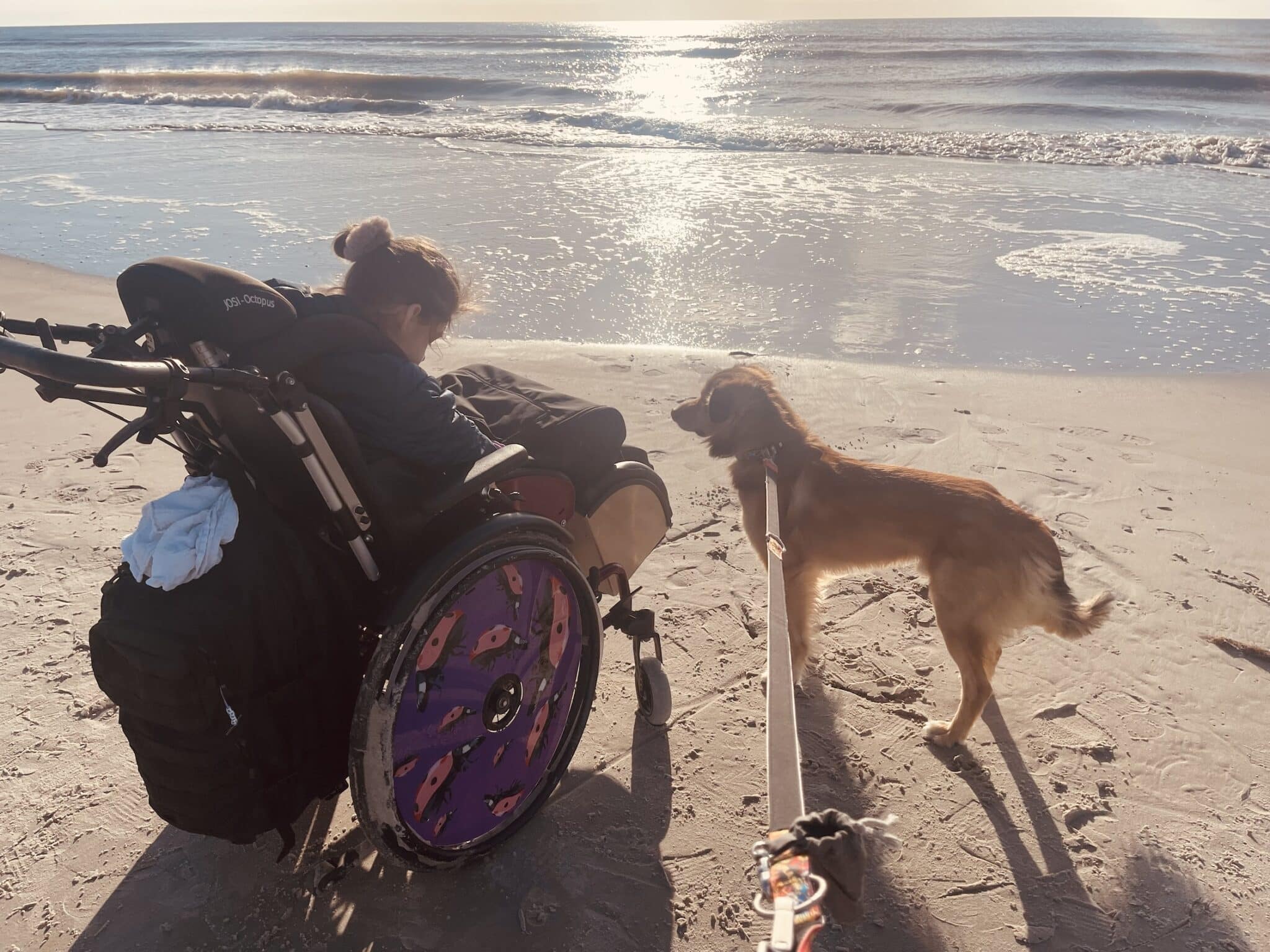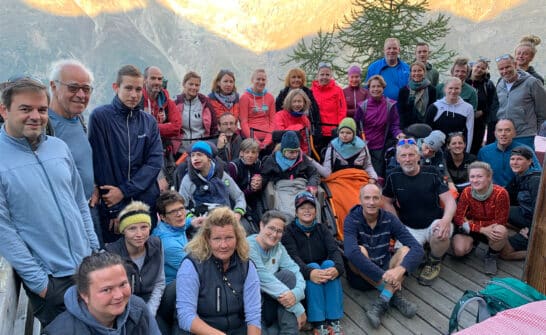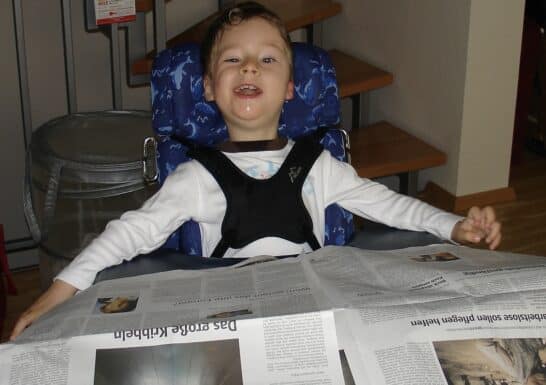The Diagnosis and Frequently Asked Questions
An information brochure (in German and English) is available to download for affected families and interested professionals.
Printed copies can be sent on request and we would be grateful for a donation to cover postage costs. Please send an email to .
Coming to terms with the diagnosis of PCH2 along with this new, radically changed perspective is the first major challenge in life with a child with a severe disability, and one that will always remain with you in one way or another. There are many models describing this process, such as the Kübler-Ross grief cycle. It looks like the letter “W” and shows that many people go through several stages of coping after being dealt a blow by fate such as a PCH2 diagnosis – and each person goes through them at their own pace.
The Curve of Coping
When you receive a bad diagnosis, you will probably go through a period of devastation, feeling shocked, angry and sad.
Thoughts such as “they must have made a mistake with the diagnosis” accompany this stage. During this time, those affected often don’t feel much worse or even better than before the setback. Following the denial stage comes the true breakdown into the…
In this stage, it starts to dawn on you: “No, this is real. I cannot ignore it.” The first step is rational acceptance, where your head already knows that there is a real problem. Then comes emotional acceptance, when your heart finally understands deep down. The “acceptance low” is often much deeper than the “shock low” at the start. However, as Ms. Kübler-Ross puts it, and as many families experience it: You have to get through the low so that you can do well in your new situation.
The only way to cope successfully is to let go of the desire to return to the situation before the diagnosis. This will not succeed and striving back to the past will only drain your energy. You need this energy to move forward and build up a new, different life. This life will be unlike what you expected, but not necessarily “bad”, “terrible”, “bleak” or “dreadful”.
Answers to Important Questions
Every child is born with a natural potential for development – imagine it like a picture frame. The size of the frame varies greatly and depends on the century in which the child was born, where in the world it was born, the social and financial status of the parents and, lastly, it depends massively on the child’s genetic disposition. The frame of a child with PCH2 is much smaller than that of a healthy child. Even so, every child has a frame in which it can develop. And the best thing you can do for your child now is to enable them to thrive and live a great life within their frame. Quality of life is not dependent on the severity of the disability. If you would like to read more about this, check out the groundbreaking paper “The Disability Paradox”.
No, that’s not true. Our PCH2 children can learn, experience life and achieve goals just like everyone else. Publications from the 1990s were wrong when they claimed that the children would not reach any developmental milestones, would be unaware of their surroundings and die at pre-school age. Head over to the Family Portraits section to read authentic experiences from PCH2 families and learn more about what to expect.
No, this is not true. We don’t know the size of it, but a frame is definitely there, so there are things your child won’t be able to learn and achieve, for example they will most likely never be able to walk or ride a bike or chew a steak. This may sound frustrating and unhelpful at first, but it helps many families keep the focus on quality of life right from the start when dealing with medication, therapies and support: You could take your PCH2 child to physiotherapy a thousand times a week but they won’t become a ballet dancer.
“After two years of logopedics every Monday evening at six, when the kids were usually in a bad mood anyways and the handicapped parking spot (“I don’t do house calls”) was blocked by people getting bread at the bakery next door, we finally switched from logopedics to music therapy. No more screaming now – the music therapist comes to our home, and the boys are laughing when she walks through the door and says ‘Hello boys’.”
Axel Lankenau, father of two sons with PCH2
Decades of exchange between the PCH2 families have shown that their children are able to do things that you never thought were within their developmental capabilities. This exchange is precisely the reason why the developmental frame of a child with PCH2 grows a little bigger with every new idea, every new experience and every achievement of each of the children shared here …
And speaking of hope: That is precisely the idea behind PCH2cure! Check out the path to a cure here.
Yes, there is a summarized explanation for parents and relatives available, but also a detailed patient brochure for parents and healthcare professionals.
This website already provides a great deal of information, e.g. tips & tricks on dealing with your PCH2 child or updates on our research activity. Here you can look for contacts in your area. Otherwise, you can always get in touch with us using the contact form. Find out who “we” are and what motivates us here.
This is completely normal and many parents of PCH2 children feel this way. You may experience setbacks in the coping process explained above – sometimes brief, sometimes longer. Most of us find it helpful to talk to other parents in a similar situation when this happens. We invite you to search for contacts in your area or send us a message using the contact form.


